





White River Manor
Verified Center
This provider's information has been quality-checked by Recovery.com's Research Team for accuracy and completeness, including center verification through appropriate third-party organizations.
Treatment Focus
This center treats substance use disorders and mental health conditions. You'll receive individualized care catered to your unique situation and diagnosis, learn practical skills for recovery, and make new connections in a restorative environment.
Primary Level of Care
Offering intensive care with 24/7 monitoring, residential treatment is typically 30 days and can cover multiple levels of care. Length can range from 14 to 90 days typically.
Treatment Focus
This center treats substance use disorders and mental health conditions. You'll receive individualized care catered to your unique situation and diagnosis, learn practical skills for recovery, and make new connections in a restorative environment.
Primary Level of Care
Offering intensive care with 24/7 monitoring, residential treatment is typically 30 days and can cover multiple levels of care. Length can range from 14 to 90 days typically.
Private Pay
You pay directly for treatment out of pocket. This approach can offer enhanced privacy and flexibility, without involving insurance. Exact costs vary based on program and length of stay. Contact the center for specific details.
White River Manor
White River Manor
About White River Manor
At White River Manor, recovery is more than just overcoming addiction—it’s about rediscovering oneself and rebuilding a life with purpose. Up to 6 clients at a time are welcomed by a top-tier team that makes them feel cared for, respected, understood, and brave enough to face their challenges and choose differently. With bespoke care, 24-hour support, elegant accommodations, and time to explore the region, clients gain the breakthrough they need.
Find Comfort in a Personalised Treatment Plan
Most clients stay at White River Manor between 28 to 120 days, depending on the substance use, behavioural, or mental health concern bringing them to treatment. Staff work with each client to develop a custom programme that will work for them based on a combination of the 12 Steps and therapies including: traditional talk therapy, music and art therapy, equine therapy, mindfulness practices, and trauma-specific treatments like eye movement desensitisation and reprocessing (EMDR).
Enjoy 5-Star Lodging Near a National Park
White River Manor offers private villas with TVs, luxurious bathrooms, outdoor showers, and, in some cases, a garden and plunge pool. Rooms are serviced daily with evening turndown and full laundry. The cuisine is prepared by a professional chef and enjoyed around a communal table or at the café with fine coffee and fresh pastries. Guests can relax with spa treatments, time in the gym or pool, or in quiet moments on the river deck or in tranquil gardens.
Stay in Touch with Work and Loved Ones
Although White River Manor encourages clients to focus on recovery during their stay, they understand that not everyone can completely separate themselves from work and life at home for a month or more. They provide Wi-Fi and allow mobile phone use at designated times to help clients manage professional and family responsibilities.
Sustain Positive Change After Treatment
After treatment ends, White River Manor develops a personalised aftercare plan to ease each client’s transition home. This may include continued therapy, support group recommendations, on-site sober living, and access to resources that reinforce recovery. Their team remains available for ongoing guidance, ensuring clients have the tools needed to maintain their progress and thrive.

Highlights from the Center
Highlights
These highlights are provided by and paid for by the center.
Therapeutic Location
Customized Treatment Plans
Certified Professionals
Executive Treatment
Center Overview
Treatment Focus
This center treats substance use disorders and mental health conditions. You'll receive individualized care catered to your unique situation and diagnosis, learn practical skills for recovery, and make new connections in a restorative environment.

Pricing and Program Length
Estimated Center Costs
The cost listed here (starting at €13,310 GBP/ £15,950 EUR per 28 days), is an estimate of program cost. Center price can vary based on program and length of stay. Contact the center for more information. Recovery.com strives for price transparency so you can make an informed decision.
Luxury rehab centers offer a unique blend of luxurious amenities and high-quality treatment. From private suites to gourmet dining, personal trainers to spa treatments, these facilities provide a high level of comfort and discretion.

Meet Your Care Team
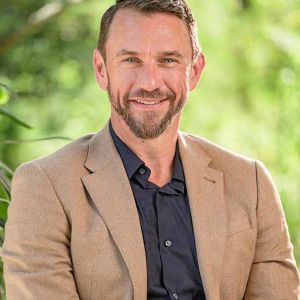
Giles Fourie
Director Co-owner

Jeanine Fourie
Clinical Director and Co-Founder

Jerry Hartless
Co-founder

Dr Magda Rall
Head Therapist
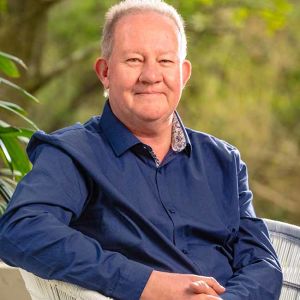
Gert Janse Van Rensburg
Clinical Psychologist

Kathy Knott
Counselling Psychologist

Alan Strachan
Addiction Therapist

Mariaan Wiltshire
Occupational Therapist

Caroline Erdmann
Equine-Assisted Therapist

Larissa du Plooy
Counsellor

Elarda Bunting
Art Facilitator

Dr Mabule Lucas Mothapo
Consulting General Practitioner

Soné Steenkamp
Human Resources Manager

Lucky Morgan
Logistics Manager

Nomcembo Simba
Front of House Supervisor

Nicolene Goss
Administration/Finance Assistant
Marne du Bruyn
Human Resources & Clinical Assistant

Sonja Lombard
Senior Professional Nurse
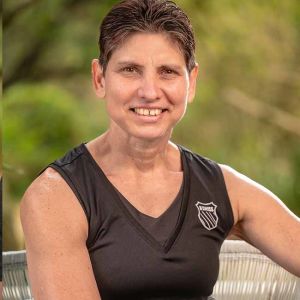
Yolanda Lizamore
Personal Trainer

Des Baird
Pilates Instructor

Maritz du Toit
Head Chef

Prue Fourie
Landscapist




Levels of Care







Your Care Options
Specializations
Alcohol
Using alcohol as a coping mechanism, or drinking excessively throughout the week, signals an alcohol use disorder.
Cocaine
Cocaine is a stimulant with euphoric effects. Agitation, muscle ticks, psychosis, and heart issues are common symptoms of cocaine abuse.
Depression
Symptoms of depression may include fatigue, a sense of numbness, and loss of interest in activities. This condition can range from mild to severe.
Drug Addiction
Drug addiction is the excessive and repetitive use of substances, despite harmful consequences to a person's life, health, and relationships.
Trauma
Some traumatic events are so disturbing that they cause long-term mental health problems. Those ongoing issues can also be referred to as "trauma."
Wellness
Wellness philosophies focus on the physical, mental, and spiritual wellness of each patient, helping them restore purpose with natural remedies.
Who We Treat
Executives
Executive treatment programs typically directly support the needs of people who manage businesses and may provide flexible schedules and office space to allow work during treatment.
Men and Women
Men and women attend treatment for addiction in a co-ed setting, going to therapy groups together to share experiences, struggles, and successes.
Professionals
Busy, high-ranking professionals get the personalized treatment they need with greater accommodations for work, privacy, and outside communication.
Approaches
Holistic
A non-medicinal, wellness-focused approach that aims to align the mind, body, and spirit for deep and lasting healing.
Individual Treatment
Individual care meets the needs of each patient, using personalized treatment to provide them the most relevant care and greatest chance of success.
Personalized Treatment
The specific needs, histories, and conditions of individual patients receive personalized, highly relevant care throughout their recovery journey.
Wellness
Wellness philosophies focus on the physical, mental, and spiritual wellness of each patient, helping them restore purpose with natural remedies.
Therapies
1-on-1 Counseling
Patient and therapist meet 1-on-1 to work through difficult emotions and behavioral challenges in a personal, private setting.
Meditation & Mindfulness
A practiced state of mind that brings patients to the present. It allows them to become fully aware of themselves, their feelings, and the present moment.
Trauma-Specific Therapy
This form of talk therapy addresses any childhood trauma at the root of a patient's current diagnosis.
Mindfulness Therapy
This ancient practice can be mental, emotional, and even spiritual. In meditation, you focus your attention on the present moment without judgement.
Adventure Therapy
This experiential approach uses the physical and emotional challenges of outdoor activities as tools for personal growth.
Animal Therapy
Animals can inspire trust and self-worth. In this experiential therapy, guided interactions are used to improve social skills and emotion regulation.
Art Therapy
Visual art invites patients to examine the emotions within their work, focusing on the process of creativity and its gentle therapeutic power.
Conditions We Treat
Pornography Addiction
A person with a porn addiction is emotionally dependent on pornography to the point that it interferes with their daily life and relationships.
Grief and Loss
Grief is a natural reaction to loss, but severe grief can interfere with your ability to function. You can get treatment for this condition.
Anger
Although anger itself isn't a disorder, it can get out of hand. If this feeling interferes with your relationships and daily functioning, treatment can help.
Anxiety
Anxiety is a common mental health condition that can include excessive worry, panic attacks, physical tension, and increased blood pressure.
Burnout
Burnout entails mental and physical exhaustion, and leads to a severe lack of fulfillment. This condition is often caused by overwork.
Depression
Symptoms of depression may include fatigue, a sense of numbness, and loss of interest in activities. This condition can range from mild to severe.
Gambling
Excessive, repetitive gambling causes financial and interpersonal problems. This addiction can interfere with work, friendships, and familial relationships.
Gaming
Compulsive gaming is most often a problem for children and teens. The disorder can affect physical health, sleep, and the ability to focus at school.
Internet Addiction
Internet addiction is common among children teens. This compulsive disorder can damage relationships, school performance, sleep habits, and physical health.
Substances We Treat
Alcohol
Using alcohol as a coping mechanism, or drinking excessively throughout the week, signals an alcohol use disorder.
Co-Occurring Disorders
A person with multiple mental health diagnoses, such as addiction and depression, has co-occurring disorders also called dual diagnosis.
Cocaine
Cocaine is a stimulant with euphoric effects. Agitation, muscle ticks, psychosis, and heart issues are common symptoms of cocaine abuse.
Drug Addiction
Drug addiction is the excessive and repetitive use of substances, despite harmful consequences to a person's life, health, and relationships.
Ecstasy
Ecstasy is a stimulant that causes intense euphoria and heightened awareness. Abuse of this drug can trigger depression, insomnia, and memory problems.
Heroin
Heroin is a highly addictive and illegal opioid. It can cause insomnia, collapsed veins, heart issues, and additional mental health issues.
Methamphetamine
Methamphetamine, or meth, increases energy, agitation, and paranoia. Long-term use can result in severe physical and mental health issues.
Opioids
Opioids produce pain-relief and euphoria, which can lead to addiction. This class of drugs includes prescribed medication and the illegal drug heroin.
Languages
Aftercare
Care Designed for Your Needs
Personal Amenities
Amenities
Special Considerations
Center Pets
Addiction and mental health facilities with pets allow patients to interact with friendly dogs, cats, horses, and in some cases, even dolphins.
Couples program
Using gentle clinical care, therapists guide patients and their partner through guided sessions to address issues and work towards lasting solutions.
Pet Friendly
For greater comfort and healing, pet-friendly treatment centers welcome dogs and animal companions to stay with their owners while they attend treatment.
Executive Program
Addiction and mental health treatment for executives typically involves high discretion, greater technology access, and more private, 1-on-1 care.
Flexible technology policies
Centers with flexible technology policies allow professionals to stay in touch with work and give patients a greater sense of connection and normalcy.
Religion-Based Track
Patients can join faith-based recovery tracks to approach recovery with others in their faith, healing in a like-minded group with similar goals.
Activities
Off-Site Activities
Off-Site Amenities

What people are saying
Treatment
5.0
Accommodations
5.0
Food & Nutrition
4.9
Value
4.6
Pros
- Beautiful Location (2)
- Luxurious Accommodations (2)
- Excellent & Effective Treatment Programming (2)
- Personalized (2)
Dr Az Maxwell Hakeem
Reviewed 11/25/22
Referring Professional
•Consultant Psychiatrist
Morgan
Treatment in 2022 • (45 days) • Reviewed 10/19/22
Former Client
•California
Jan
Treatment in 2022 • (60 days) • Reviewed 08/27/22
Former Client
•Advertising
•UK
G. from Amsterdam
Treatment in 2022 • (30 days) • Reviewed 09/19/22
Former Client





